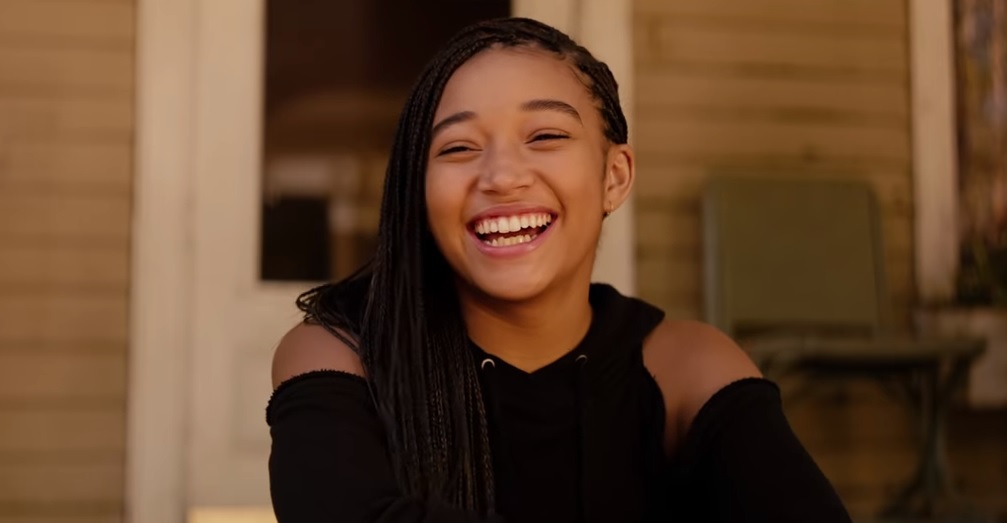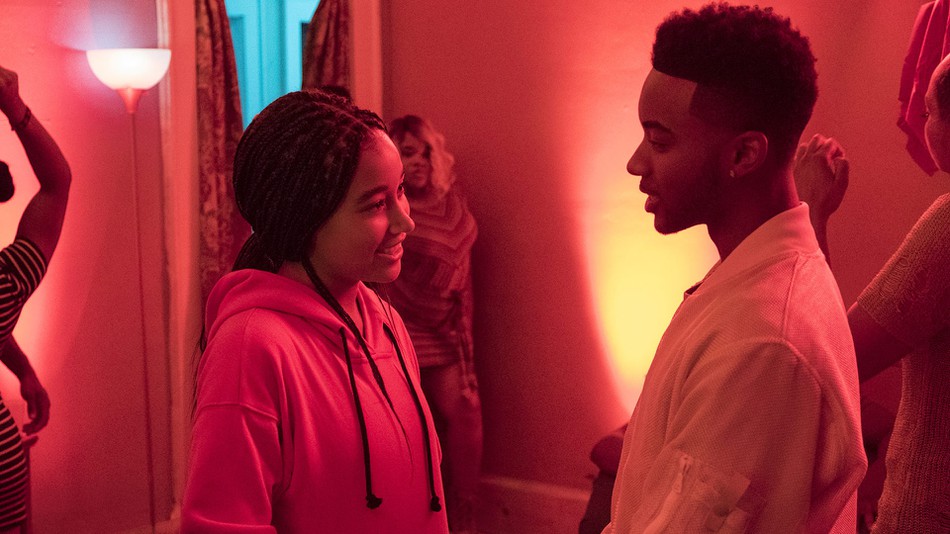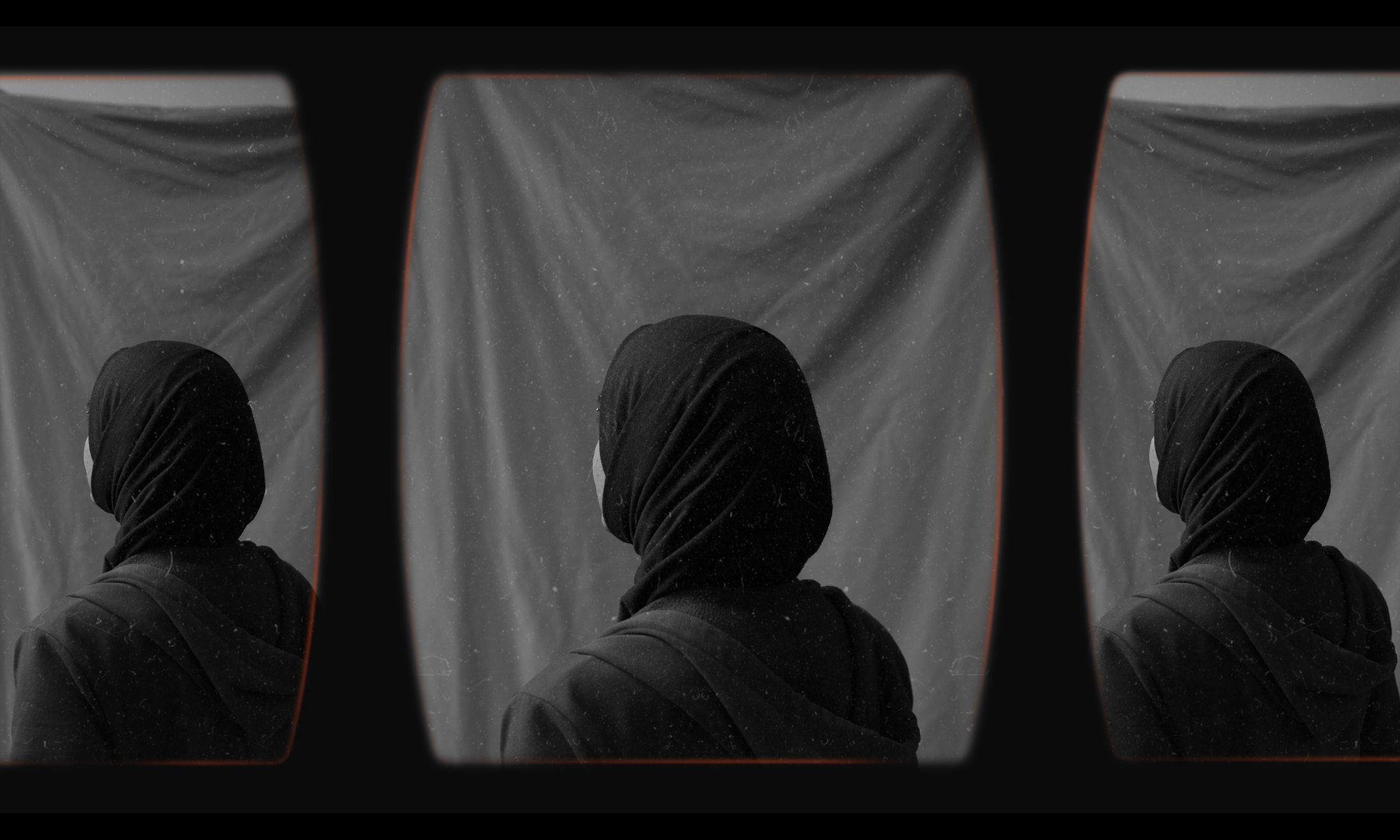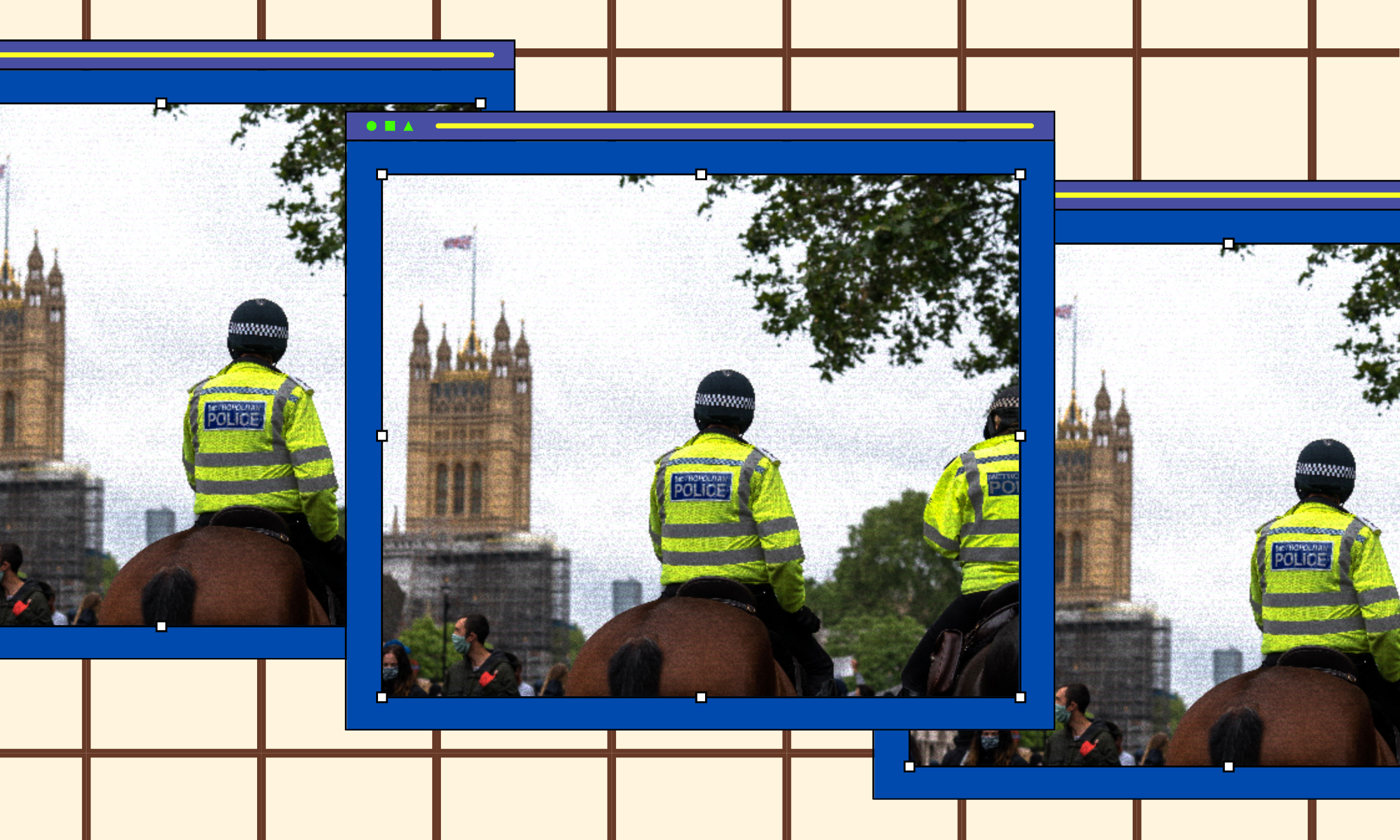
‘I’m a black, gay woman – the personal is political’: gal-dem talks to Amandla Stenberg
Charlie Brinkhurst Cuff
28 Oct 2018
Image credit: 20th Century Fox
Amandla Stenberg sits across from me on a plush sofa in the Soho Hotel. Blunt-cut, golden-brown box braids woven with red and yellow frame her face and she’s dressed brightly in a purple-toned top and flared blue jeans.
She is tired in a young person kind of way. The night before, I had watched her live in studio appearing on BBC’s The One Show, where she answered each question without hesitation and impeccable articulation. The only giveaway to her tiredness, which sat on the edge of boredom, was when the cameras briefly turned away from her and she made a funny face to no one in particular, puffing out her cheeks and staring at the ground. “We’ve been doing this for about 40 days,” she tells me conspiratorially as we settle down to begin the interview. “I’m ready to go home, but it’s still so exciting.” As we’re chatting, her agent brings in a cup of strong coffee and a pot of cream.
At only 19, Amandla (who has been known to use both she/her pronouns but also they/them) has already made a star turn in The Hunger Games, but it’s only been in 2018 that the spotlight has really been trained on her. Alongside her roles in The Darkest Minds and Amma Asante’s Where Hands Touch, she also came out as gay in an article for Wonderland magazine. “I happen to walk in an existence that is very persecuted,” she tells me when talking about her activism not always being a choice. “I’m a black, gay woman. They politicise so many of the things that I say. But at the same time, they’re not wrong because the personal is political when you’re black and when you’re queer.” In recent months it’s been reported that she is dating musician King Princess.
“They politicise so many of the things that I say. But at the same time, they’re not wrong because the personal is political when you’re black and when you’re queer”
What has been her choice, however, is to work on projects that correspond with her political views. The Hate U Give, based on the YA book by Angie Thomas, tells the story of 16-year-old Starr Carter, the sole witness to the death of her friend Khalil (Algee Smith) at the hands of a police officer.
In an interview with gal-dem, Thomas explained that the book was written in response to the death of Oscar Grant in 2009, who was forced to the ground and then shot in the back by a police officer. “A lot of the people didn’t understand why I was so upset at this person’s death. He was an ex-con and he was trying to turn his life around but for some of them, the fact that he was an ex-con took value away from his life,” said Angie. Khalil’s backstory is similarly nuanced; he is a member of the King Lords gang, but more importantly, he is one of Starr’s oldest friends, her first kiss and a loving brother, son and grandson. He is a black boy who didn’t deserve to become a victim of a racist system.
Amandla, who grew up in a black neighbourhood in South Los Angeles with her African American mother and Danish father, first started going on Black Lives Matter marches when she was 15. This made filming “kind of feel like deja vu”, she says. “I remember the first marches I went to were so heavy and impassioned and I remember when my neighbourhood stores were looted during the riots.” She was “already familiar” with the realities of life amongst that backdrop and “having to lock our doors and draw our shades and stay inside because we wanted to steer clear of what was going on outside”. Referencing both Michael Brown, fatally shot by police in 2014 and Rodney King, violently beaten by officers (before Amandla’s time) in 1991, she says that she was able to bring “a little” of her experiences into Starr. “Obviously, she experiences that in a way that is a lot more intense. And it’s so personal to her. So, so personal to her.”

20th Century Fox
Although the day before I interview Amandla, Black Lives Matter co-founder Patrisse Khan-Cullors and organiser Melina Abdullah released an article in the Los Angeles Sentinel titled “Why ‘The Hate U Give’ Is Not a Black Lives Matter Movie”, which breaks down why the movie’s conservatism means that it “is propaganda that tells us that the answer to our woes is not addressing the intentional design of policing systems that are rooted in slave-catching and kill our people at least every 28 hours, but to trust that system to bring an inherently pathological Black community in line”, for Amandla, the links between the movie and the movement are clear. “I think we all feel it in black communities,” she says. “We all feel the pain of persecution, of people we know, of people we don’t know but look like us, continually facing violence or death because of the way that we look. That wasn’t something that was challenging to feel and feel passionate about.”
The Hate U Give book, in my opinion, also does a slightly better job of setting out the politics that threads through the film, which leans toward a narrative of “black-on-black” crime being just as pressing a problem as systemic racism. In Chapter 10, Maverick Carter, Starr’s dad, explains why Tupac’s original meaning of THUG was explicitly talking about “a system designed against us”. Amandla mentions that there were elements of the book which didn’t quite make it into the film, such as “some scenes with Chris [played by actor KJ Apa]”, who plays Starr’s (white) boyfriend. “His part got cut down considerably. In the book you get a fuller understanding of the fact that he comes from a place of ignorance but his heart is in the right place,” she tells me. “His intention is good. He just doesn’t fully understand how to conceptualise his girlfriend’s blackness and that he needs to be inclusive of it instead of pretending it’s not there.” Chris’ journey ends in him going to a protest with Starr where “he actually does what an ally should do which is shut up and listen and do what he’s asked to do”.
“This is a heavy film, thick with trauma and undeniably emotionally arresting. I sobbed my way through the screening”
This is a heavy film, thick with trauma and undeniably emotionally arresting. From the moment Khalil is killed, an ominous fog hangs over the characters’ interactions – especially where the police are involved. Though some would call it trauma porn, I would argue that the political message of The Hate U Give as a text is not entirely lost. Some characters lead tough lives, are drug addicts and part of gangs, but on the whole, many of the black characters in the movie, and especially Starr, are well-rounded. Maverick Carter, fantastically played by Russell Hornsby, still does ground the movie with his connection to the Black Panthers and his political and social understanding of black identity. The Hate U Give could not be everything for everyone, and indeed not to those who do not believe it should have been made in the first place. But as black Brits, we have our own history of police brutality, negligence and racism which we rarely see reflected on screen and therefore, is rarely acknowledged. Art is one of the places where empathy is brewed and knowledge is gained. I do believe The Hate U Give achieves this.
However, beyond the resounding message that police brutality is wrong and “The Hate U Give Little Infants Fucks Everybody” surprisingly to me, one of the main things that has been picked up on by the media is Starr’s portrayal of “codeswitching” between her black neighbourhood and her white, middle-class high school. For many black people, this codeswitching is part of our daily routine; and while it’s true that it’s an uncommon trope in Hollywood, the interest in it has taken me, and Amandla, by surprise. “Some white people are shocked that black people present themselves differently depending on the environment that they’re entering which is really funny to me,” Amandla says. “That means that we’re really good at it [laughs]. But yeah, it’s cool. There have been a few people after Q&A’s who’ve been like [miming tears], ‘I… just… didn’t… know it was like that for you guys!” Like crying. ‘I didn’t know you were feeling that in the black community.’ We’re like, ‘Okay, alright, there-there’.”
The film has been met with widespread praise from critics, who have deemed Amandla’s performance Oscar-worthy. But the road to getting to the film out has been bumpy. She first attached to the movie three years ago, when it was still an unpublished manuscript and went through the scriptwriting process with Thomas, who, she says, “had already been conceptualising me as Starr”. But when the casting choice was announced, there was an immediate backlash. “It was challenging heading into filming with the knowledge there was so much criticism of my casting,” she admits. The disapproval primarily came from the fact that colourism in Hollywood is an ongoing problem, complicated by an already whitewashed industry which means that lighter-skinned actors like Yara Shahidi, Storm Reid, Zendaya and Amandla almost entirely represent the face of young black teenagehood in 2018.
20th Century Fox
Amandla is a biracial, light-skinned black woman – whereas the character in Angie Thomas’s book is described as being darker skinned and having two black parents. The illustrator who drew the imagery for the original cover of the book (a dark-skinned girl with a large afro) was one of the first people to call out the choice, noting that “there’s so little opportunities in these big movies for darker-skinned actresses”. Comments like these made Amandla think about her shade “for the first time”, a privilege in itself. Before then, she says, she had always just thought of herself as black. “I’m biracial but I never really had to think beyond that because I went to a school that was predominantly white so the only way those kids were thinking about me was ‘black’… even when I was a kid and I was in The Hunger Games people were upset because I was black and being cast in that role.”
Even though it wasn’t the first time she had thought about the ways in which she is “afforded accessibility in media because I’m biracial”, the idea that she wasn’t seen as black by members of her own community threw her. “[It] was really challenging because I’m like, alright well, where do I go? Who do I belong to?”
However, Amandla, who dropped out of the audition process for Shuri in Black Panther because of her concerns over “spaces that I should not take up”, thinks that “it’s good for everyone to be knocked off their ass a little bit and confronted with the privilege I do have”. She also notes that she understood that the backlash to her casting was “coming from a real place of pain”. Colourism doesn’t just affect people in Hollywood: it has stark implications on people’s quality of life. But, in an industry where black people of all shades remain underrepresented, it’s difficult to judge as to whether or not she should have turned down the role altogether. There’s no denying that in the movie she does justice to the character, presenting Starr as a grieving teenager with an undercurrent of steel, who, by its finale, is able to find her voice. Her eyes are as emotive and empathetic onscreen as they are in real life.
“Even when I was a kid and I was in The Hunger Games people were upset because I was black and being cast in that role”
Next up for Amandla is a foray into filmmaking, which she loves “more than everything”. Shorts by her from as early as 2016 showed, naturally, a precocious talent. “I was going to go to film school – I was supposed to go to NYU to study – and then I deferred, and then I deferred again and I ended up not going because I started getting opportunities like this. I’m able to learn so much on set which is amazing. And I’m still making shorts in my spare time.” Right now, she is working on the first feature she wants to direct. “I’m just drafting it up right now,” she smiles. “The themes are exploration, sexuality, safety, sisterhood and travel.” Quite right.
Press junkets, where you get to interview stars like Amandla in brief slots, are funny things. A rabble of journalists, many of whom know each other, are politely herded into a room by PRs, and then one-by-one, called through to conduct their interviews. It felt as though we were just warming up when Amandla’s agent came through to notify us that we only had two minutes remaining. But of course, being Amandla, she gives me the perfect quote to round off the interview. She smiles: “All I can do is speak to my own experience and write about it and share it through my art, and hope that through that I make people feel less isolated in their own identities.”









